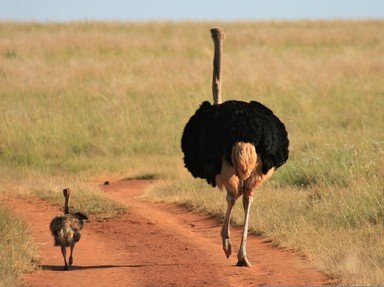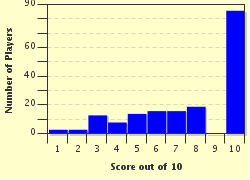
Anybody Seen My Baby? Trivia Quiz
I don't think that The Rolling Stones were thinking about baby animals when they wrote their 1997 hit. But maybe you can answer their question and find the baby to match the parent. Have fun!
A matching quiz
by reedy.
Estimated time: 3 mins.
